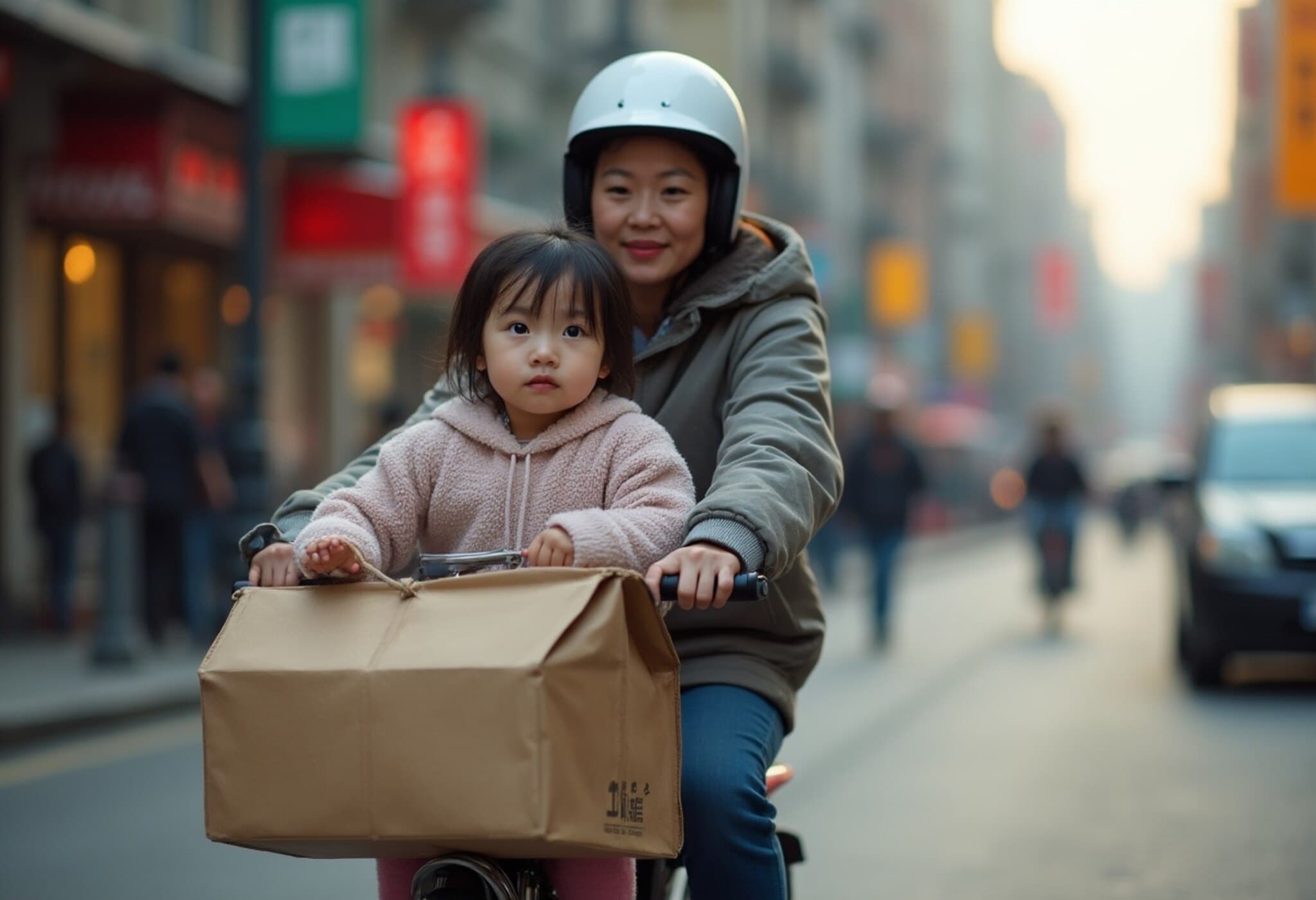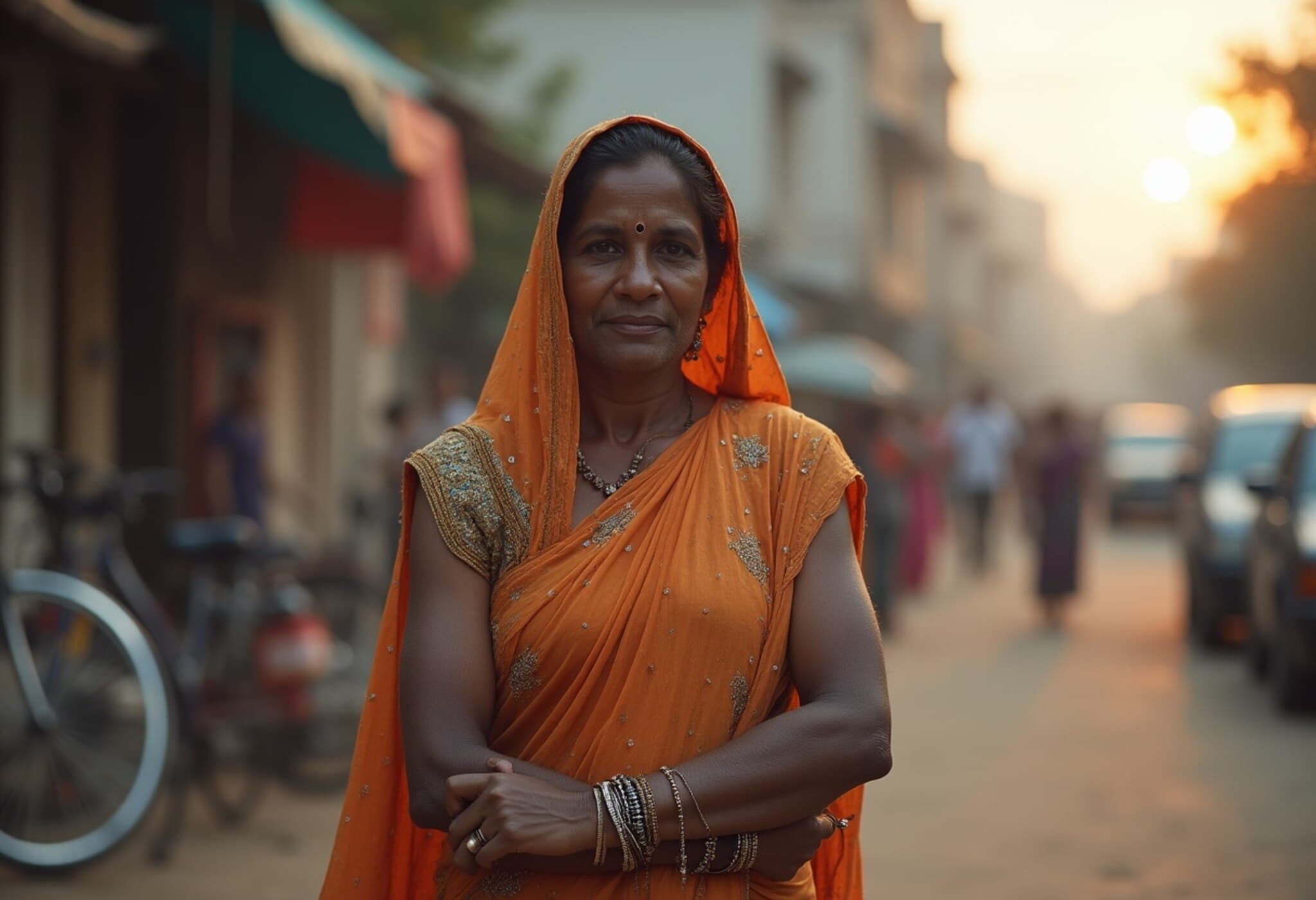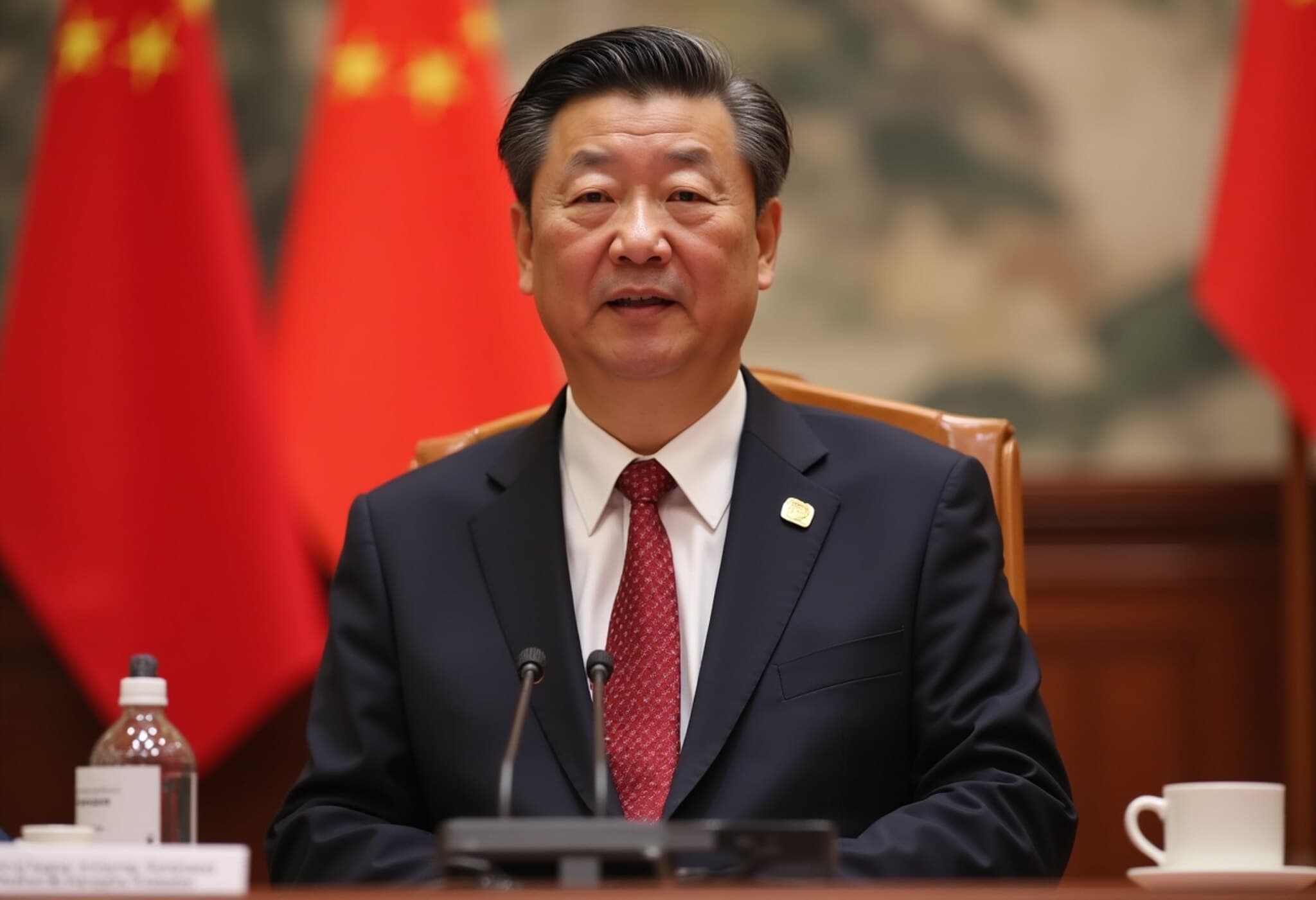A Mother’s Unseen Battle: Delivering Food While Caring for a Sick Child
In a heart-wrenching glimpse into the challenges faced by many gig economy workers, a 25-year-old Chinese mother named Zhu has captured international attention after footage emerged showing her delivering food while carrying her critically ill four-year-old daughter, Nuoxi, inside a courier box strapped to her delivery bike.
The Harsh Reality Behind the Viral Video
Zhu, a food delivery rider for Meituan in Anhui province, balances her exhausting 14- to 15-hour shifts with the urgent needs of her daughter, who is undergoing intensive cancer treatment. Nuoxi has endured three surgeries, nine chemotherapy sessions, and 12 rounds of radiotherapy, rendering Zhu reluctant to leave her daughter alone at home.
“I didn’t want to leave her alone,” Zhu explained to the South China Morning Post. “So I bring her with me inside the courier box while I work.” Scenes from the video reveal Nuoxi’s vulnerability—she has a chemo port in her chest and a IV needle still attached to her hand.
Living on the Edge: The Gig Economy’s Toll on Families
Zhu’s family story reflects broader socioeconomic issues facing millions of China’s migrant workers and gig economy participants. Both Zhu and her husband, Guan, work as delivery riders to cover the extensive medical bills and daily expenses. With no one else to care for Nuoxi during the day, Zhu often must juggle navigating stairs, the sweltering heat, and her child’s fragile health simultaneously.
“Sometimes I have to carry her in one hand and food in the other,” Zhu shared. Despite the immense pressure, she finds strength in small moments—when Nuoxi smiles or presses the elevator button herself.
Systemic Gaps: Lack of Social Support for Gig Workers
The public outcry triggered donations and sparked government intervention, with local authorities offering financial aid and Meituan providing support. Yet, the case underscores significant gaps in China’s social safety nets, particularly for gig workers who lack traditional employment protections or healthcare benefits.
Social media users reflected on the tragedy beyond sympathy, urging systemic reforms:
- “Help shouldn’t come only after videos surface,” wrote one netizen, emphasizing the need for proactive welfare systems.
- Others questioned existing labor policies around gig work hours, citing Meituan’s new rest mandates that some riders say reduce earnings and threaten livelihoods.
The Broader Picture: Healthcare, Poverty, and the Future of Work in China
China’s food delivery market alone accounts for billions in daily transactions, fueled by millions of riders working exhaustive hours under high stress. Zhu’s story spotlights the precarious balance these workers maintain between earning a living and protecting their families.
Moreover, it raises poignant questions about how urbanization and rapid economic shifts interact with healthcare accessibility, poverty alleviation, and labor rights — challenges not only in China but worldwide. Zhu’s experience invites policymakers and the public alike to reconsider how societies value caregiving, work, and social safety nets amid technological transformations.
Expert Insight
Labor economist Dr. Mei Wang notes, "This case is emblematic of the hidden costs of the gig economy. While flexible work offers income opportunities, it often lacks adequate social protections—especially critical for workers managing family health crises. Policy responses must address both economic inclusion and healthcare accessibility to create sustainable support systems."
Editor’s Note
Zhu’s story is more than a snapshot of individual courage; it’s a stark reminder of millions navigating survival in gig economies worldwide. It forces us to confront tough questions: How can societies build social safety nets robust enough to protect their most vulnerable? What responsibilities do companies operating these platforms hold? And, ultimately, how do we ensure that technology and economic progress uplift rather than endanger families like Zhu’s?



















